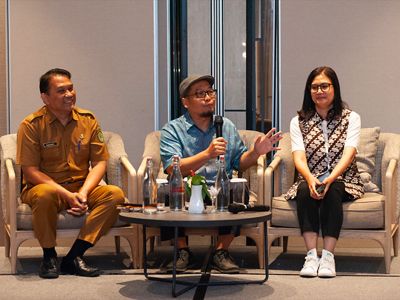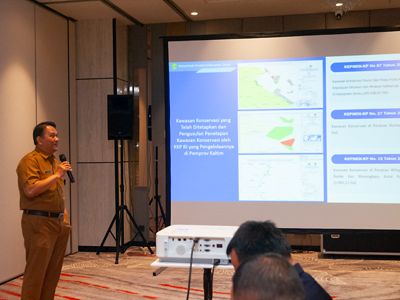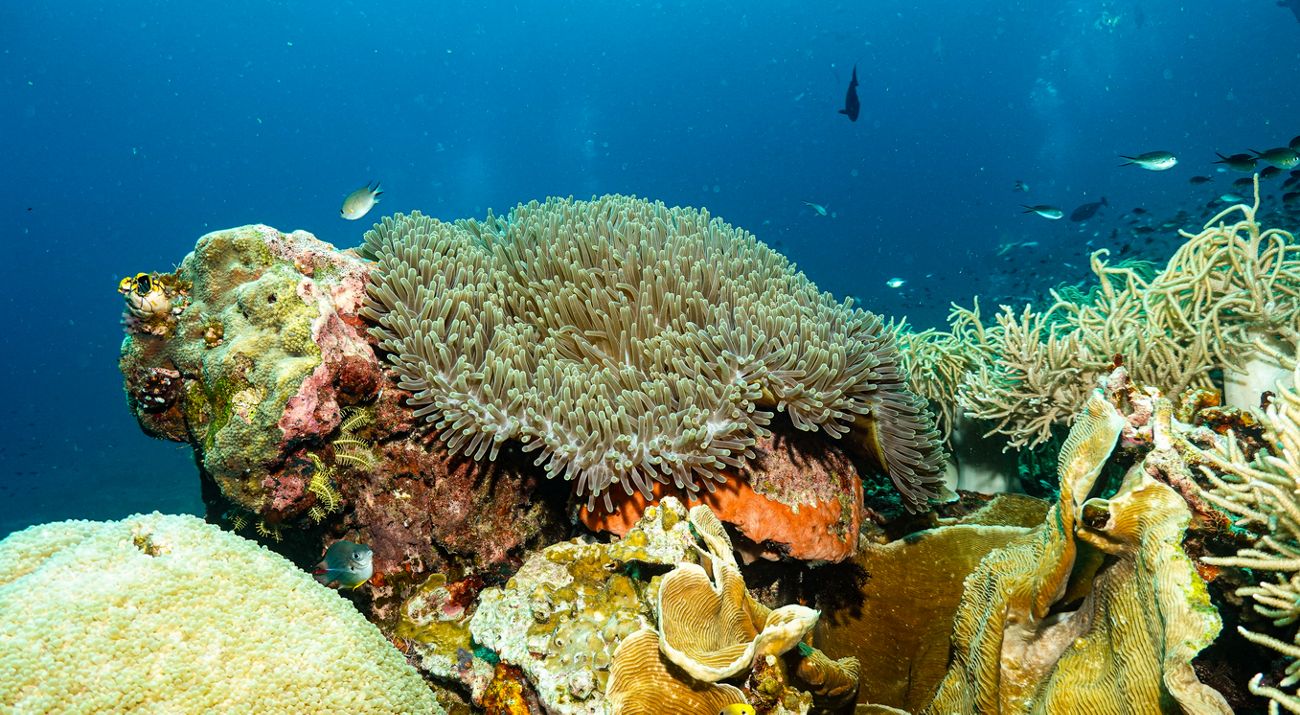Kick of Koralestari Program in East Kalimantan: YKAN Supports the Establishment of UPTD-BLUD
Media Contacts
-
Adia Puja Pradana
Communications Specialist Ocean Program YKAN
Email: adia.pradana@ykan.or.id
To enhance efforts in coral reef protection and restoration through the promotion of blue economy activities, the Nature Conservation Foundation (YKAN), in collaboration with partners, has initiated the Koralestari program. After its launch in Kupang on July 1, 2024, the program, supported by the Global Fund for Coral Reefs (GFCR), was also launched in Samarinda, East Kalimantan Province, on Tuesday, July 9, 2024.
The Koralestari program is implemented in three priority areas with a total area of 4.1 million hectares. These include the Coastal and Small Islands Conservation Area of the Derawan Archipelago and Surrounding Waters (KKP3K-KDPS) in Berau Regency, East Kalimantan Province; the Sawu Sea National Marine Park (TNP) in NTT Province; and the Lingga District Marine Conservation Area (KKPD Kabupaten Lingga) in the Riau Archipelago Province.
The vision of the Koralestari program is to transform coral reef protection and restoration efforts through sustainable financing from Marine Conservation Areas, positively impacting coral reef sustainability, increasing local community income, and enhancing coastal resilience to climate change.

Muhammad Firdaus Agung, Director of Marine Conservation and Biodiversity at the Ministry of Marine Affairs and Fisheries (KKHL KKP), Said to optimize the Koralestari program, attention must be given to three aspects: conservation, financing, and economics to reduce pressure on coral reefs. According to him, coral reef ecosystem improvements through Koralestari can be combined with blue economy initiatives that contribute to community welfare.
"Coral reefs are crucial for ocean health. In a broader context, the sustainability of Indonesia's coral reefs impacts local communities and globally. Therefore, good coral reef areas must be protected through conservation efforts, while damaged areas will be restored. Nationally, the Koralestari program can contribute to blue economy policies and improve the effectiveness of conservation areas," said Firdaus.
Ujang Rachmad, Assistant II for Economic Affairs and Development Administration of East Kalimantan Province, emphasized the importance of collaboration for the success of the Koralestari program. He hopes the program can be executed collaboratively between the central government, provincial government, district government, village government, and development partners, considering each party's potential and authority.
"The Koralestari program will be effective if conducted collaboratively between the East Kalimantan Marine and Fisheries Office, Berau District Government, and other development partners. In the future, it can be integrated with strategic marine and fisheries plans in Berau District and other government work programs," explained Ujang.
Strengthening Institutions for Conservation
Coral reef ecosystems in East Kalimantan Province have tremendous potential. In addition to being part of the Coral Triangle, several waters in East Kalimantan have already been designated as conservation areas. However, Muhammad Ilman, Director of YKAN's Marine Program, stated that conservation areas in East Kalimantan are still challenging to manage due to weak institutional support.

"Local livelihoods cause ninety percent of coral reef damage. Therefore, by establishing institutions, the management of conservation areas can be more effective and help develop local livelihoods," explained Ilman.
Sustainable and innovative financing in KKP3K-KDPS will be assessed through opportunities for establishing Regional Technical Management Units-Public Service Agencies (UPTD-BLUD) and exploring coral reef insurance options. BLUD is considered a potential institutional strengthening tool among related agencies, communities, and other development partners, significantly impacting conservation area management and improving community welfare.
"If realized, establishing BLUD will greatly assist in managing conservation areas through sustainable funding. Besides preserving coral reef ecosystems and boosting coastal community economies, we can achieve even greater benefits, including climate change adaptation," concluded Ilman.
Yayasan Konservasi Alam Nusantara (YKAN) is a scientific-based non-profit organization that has been present in Indonesia since 2014. With the mission of protecting lands and waters as life support systems, we provide innovative solutions to realize the harmony of nature and humans through effective natural resource management, prioritizing a non-confrontational approach, and building a network of partnerships with all stakeholders for a sustainable Indonesia. For more information, visit ykan.or.id.


